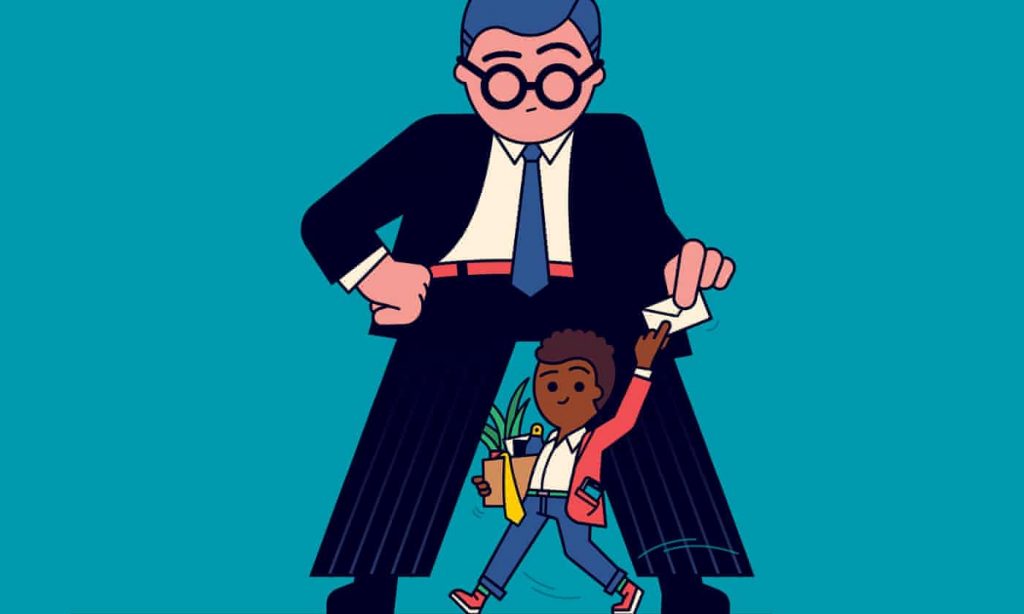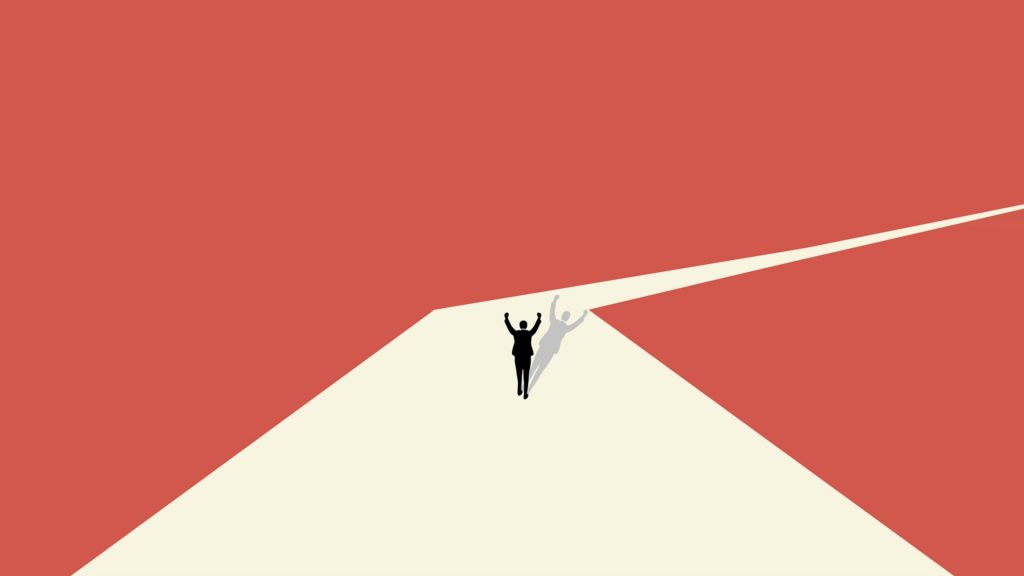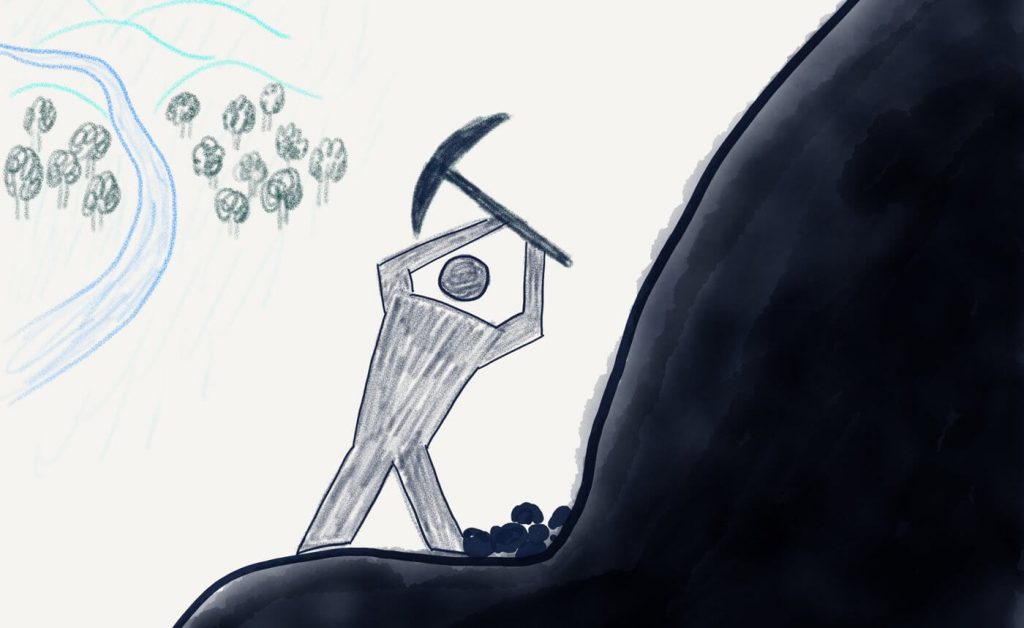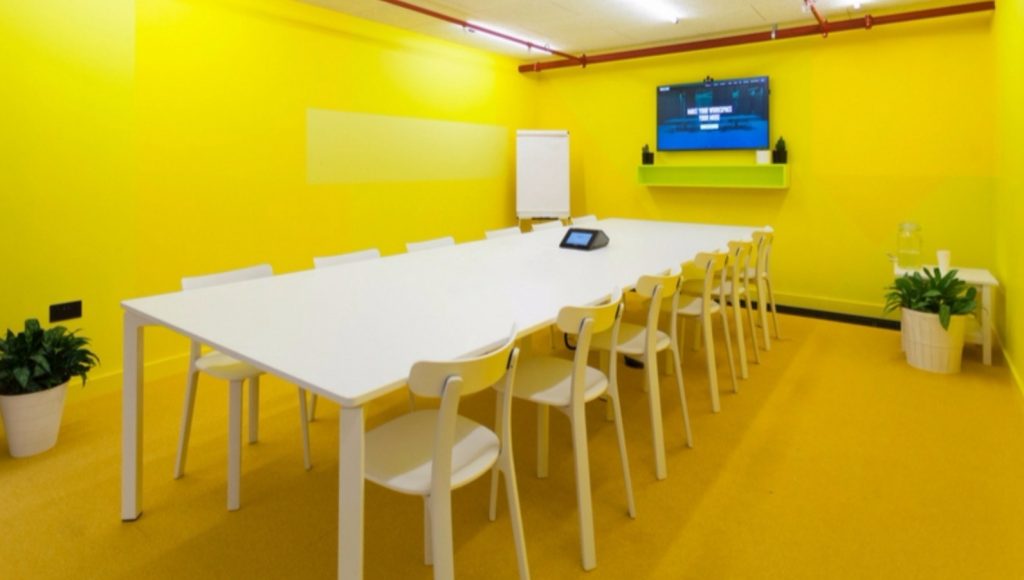At the end of October I left the security of the corporate job where I’d dedicated almost six years of my energy and passion.
Right now I’m enjoying a few weeks of recharge time before I start an exciting new role that I’ll probably discuss in a future edition, so I won’t be sharing details of that yet. But I will share a little of how I came to that decision.
In deciding to leave adidas I became a statistic in ‘the great resignation’ (more about that later). And it was a decision that came as a result of months of journalling, reflection and planning, substantial listing of pros and cons, and seeking the counsel of friends and family members.
What made it so extremely hard to leave was that I can thank adidas for many amazing things in my life. adidas gave me the opportunity to leave the UK, to work and live in two different countries (as well as travel to several others), make friends from all over the world, learn and grow in many different ways – professionally, emotionally, culturally – on my way to achieving some of my proudest professional achievements. And I’m barely scratching the surface with that list. Objectively speaking, by many measures, ‘my adidas years’ have been one of the best seasons of my life.
But just because some factors have gone very well and I’m able to recount a highlights reel that makes me smile with pride, that isn’t often how it felt day-in, day-out.
I received a lot of great advice building up to my decision to leave, but one thing that stood out was a line from Jonathan Mildenhall, the respected Brand Strategist and former CMO of Airbnb who always advises his mentees, “Find the thing you do really well that doesn’t drain your energy.”
Upon reflection, I realised that I’m incredibly fortunate in my career to have spent 10-15 of my 20 adult working years in roles where I believe that was the case. Where the nature of the work was such a great fit for my talents and interests that it often didn’t feel like work at all. Where the scope for creativity was high, and where I felt there was a symbiotic relationship between the expertise required of me and the talents I enjoy and take pride in using, or that I was excited to learn and develop further. I have experienced first-hand that is possible, and once you’ve tasted how satisfying that feels each day, it’s harder to accept anything less.
Not to say that that was never the case with adidas. There was some overlap between the work that energises me and what was expected of me. But I want more overlap. I know what it’s like to have that, and I found a new opportunity where I was able to choose that again.
This is an over-simplification of a complex and lengthy decision process, comprising many factors, and rightly so. Career decisions are hard. Especially at a time when there are so many prominent external variables in the World. Not only did the pandemic give many of us time to pause and reflect on how we’re spending our lives, it also brought a range of practical factors into play. Are you finding your job much more draining now it involves six-plus hours of video calls per day? Has your company introduced a new hybrid working policy that doesn’t suit you and your family? Has your awareness of major issues like social injustice or climate change grown so much over the past 18 months that you want to play more of an active role?
If these considerations, or others like it, are on your mind at the moment, you are certainly not alone. So, given my impending career change, and the wealth of content on the topic of work and careers at the moment, it seemed like a natural choice to dedicate this edition of The Power Up to the topic of Work, how to enjoy it more, career change, and related topics.
In this week’s issue:
- Ready to quit your job? Here are 17 questions to ask yourself first
- Mise-en-place for knowledge workers: 6 practices for working ‘clean’, inspired by top chefs
- The 5-minute habit to switch your brain from ‘work mode’ to ‘relax mode’
- Nobody is taking sick days anymore. And that’s bad.
- Has the expectation myth of “loving what you do” ruined modern work for everyone?
- Why do so many of us buy into the ‘cult’ of overwork?
- The roots of ‘the great resignation’ stretch back a decade
- Our pick of wellbeing gifts for him: Christmas 2021
- How to find your ‘zone of genius’
Plus plenty of bonus content too.
As ever, I hope you find something in this edition that helps you better enjoy and thrive in your work, or make an informed decision about what you might do instead.
Enjoy!
ON WORK & CAREER CHANGE / FEATURE
Ready to quit your job? Here are 17 questions to ask yourself first

It’s been called ‘the Great Resignation’.
And whether it’s a result of a pandemic-induced shift in priorities, or simply a desire for change, many people have left, or are thinking of leaving their jobs.
But how do you know if you’re in desperate need of change, or just in a pandemic funk? Here are 17 questions to ask yourself.
ON WORK & CAREER CHANGE / HABITS
Mise-en-place for knowledge workers: 6 practices for working clean, inspired by top chefs

Despite the fact that knowledge work has been digitised now for several decades most of us receive precious little training in how to “do” knowledge work effectively. There is no class in college on how to triage your email inbox, manage your agenda, or organise your computer files. And the situation doesn’t improve when we enter the workforce: most employers don’t teach us how to formulate goals, document our knowledge, or automate our most common tasks.
We spend huge amounts on our education, plus thousands of hours learning specialised skills, yet so little time and effort is spent mastering the most fundamental skill of all: how to manage our work.
To develop a culture of systematic improvement it’s not enough to have inner discipline. We also need to follow an outer discipline – a system of principles and behaviors – to channel our energies, thoughts, and emotions productively. A system that adds some structure to the constantly changing flux of information that we interact with every day.
One of the closest parallels can be found in mise-en-place, the respected culinary tradition used by chefs in commercial kitchens around the world.
Like us, chefs only have so much energy and working memory at their disposal. Chefs use mise-en-place – a philosophy and mindset embodied in a set of practical techniques – as an ‘external brain.’ – a way to externalise their thinking into their environment and automate the repetitive parts of cooking so they can focus completely on the creative parts.
This article summarises some of the most useful lessons we can put to use in knowledge-intensive work.
ON WORK & CAREER CHANGE / MIND
The 5-minute habit to switch your brain from ‘work mode’ to ‘relax mode’

It can be tough to turn off at the end of the working day.
You’re ready to be done, but your head is still buzzing from the cascade of emails that didn’t seem to end, the Zoom calls (that could’ve been an email) and to-dos that never had a chance of getting done.
But just like you cool down with a light jog or stretching post-workout, you can cool down after your day to switch from work mode to relax mode.
How? With this quick deep breathing exercise.
ON WORK & CAREER CHANGE / BODY
Nobody is taking sick days anymore. And that’s not a good thing.

Sniffling? Bit of a cough? Running a fever? Log out of Slack and take a sick day.
After a year of such symptoms inducing Covid terror and necessitating a gag-inducing test, it should go without saying that illnesses are better off kept at home. But we should also take sick days even when we’re working from home.
British people don’t tend to call in sick. 70 per cent of respondents to a 2021 CIPD survey reported staff using annual leave for sickness or to catch up on work, suggesting a worrying trend of sickness ‘presenteeism’.
Another workplace survey suggested that at least a third of people worked despite being unwell during lockdown, with another suggesting people are worried about letting down their team or being seen as slacking by employers.
It might seem smart at first to keep on top of emails while ill and avoid returning to a pile-up of to-dos. But there are longer-term dangers to not giving our bodies chance to recover, both physically and psychologically.
Plus, what precedent and expectations are we setting for the future? Not just for ourselves, but for our colleagues? Imagine a scenario where you start a new job and catch a heavy cold in your second week. You might believe you’re doing your new team members a favour by powering through so as to not let them down. But what you might actually be doing is introducing a pressure that they can no longer take rest when they get sick.
ON WORK & CAREER CHANGE / SPIRIT
Has the expectation myth of “loving what you do” ruined modern work for everyone?

The old adage “Love what you do, you will never work a day in your life,” has been pummeled into our heads over the years. It’s even the slogan for a popular co-working space, printed on t-shirts and hats. But for most people, that phrase is a load of crap, and it’s a harmful load of crap, too.
After all, as long as people wonder how to find a job they love, they’ll never actually step in to make the job that they have a better one. “Do what you love, love what you do” is a fantasy of modern work that keeps people from understanding the ways in which they could make work better for themselves and their coworkers.
After all, the implication that “loving what you do” carries is that if you find something that stokes your passion, then frustration anger, or the rat-race struggle to get that promotion won’t actually feel like, well, work. It also has the pernicious effect of making money and benefits secondary to that passion — rather than the benefit of work itself. This type of thinking, however, pervades the modern workplace. And it’s making work worse than ever.
ON WORK & CAREER CHANGE / WELLBEING
Why do so many of us buy into the ‘cult’ of overwork?

Although many of us associate overly ambitious workaholism with the 1980s and the finance industry, the tendency to devote ourselves to work and glamourise long-hours culture remains as pervasive as ever. In fact, it is expanding into more sectors and professions, in slightly different packaging.
New studies show that workers around the world are putting in an average of 9.2 hours of unpaid overtime per week – up from 7.3 hours just a year ago. Co-working spaces are filled with posters urging us to “rise and grind” or “hustle harder”. Billionaire tech entrepreneurs advocate sacrificing sleep so that people can “change the world”. And since the pandemic hit, our work weeks have gotten longer; we send emails and Slack messages at midnight as boundaries between our personal and professional lives dissolve.
In spirit, we’re not so far from the Gekko years as we think. Yet, one thing is different: we understand far more about the consequences of overwork, and the toll burnout can take on our mental and physical health.
Given how entrenched our admiration for high-stress work culture is, however, halting our overwork obsession will require cultural change. Could the post-pandemic world be our chance to try?
ON WORK & CAREER CHANGE / TRENDS
The roots of ‘The Great Resignation’ stretch back a decade, says Wharton’s Adam Grant

One of the biggest myths about the Great Resignation (the name given to the record numbers of employees quitting their jobs over the course of 2021) is that it is, basically, primarily a fight about remote work, triggered by the pandemic.
People are quitting in droves, the misapprehension goes, because they want to continue working from home while their bosses are trying to herd them back to the 9-to-5 grind. Nope, experts say, the causes of the current hiring crisis run deeper and are entangled with questions about the meaning and role of work.
And many leaders aren’t just wrong about why the Great Resignation started, they’re also wrong about when it started. What appears to be a post-pandemic issue actually has roots that extend back at least a decade, and has lots to do with shifting generational values. Whilst boomers, and Gen Xers are perceived as placing a higher value on net worth and material goods, Millennials and Gen-Zers are much more motivated by a desire for autonomy and flexibility.
“It’s not about jumping up titles, but moving into better work environments.”
R E C O M M E N D E D
Do you Morning Brew?
Not only is fellow email newsletter, the Morning Brew, a great source of inspiration for The Power Up, it’s also our essential daily update to keep us up to speed on the big stories impacting business, work and culture.
Find out why over 3 million people read Morning Brew, using the free subscription link below. (You can unsubscribe anytime if you’re not into it).

B O N U S
C O N T E N T

How to find your ‘zone of genius’
A lot of people find themselves spending the majority of their working hours on tasks that drain their energy. But there’s another way…
When hard work doesn’t work
The belief in the absolute sacredness of hard work is misguided at best, and very often dangerous…


How to use email to spend 50% less time in meetings
An email template you can use to make meetings more efficient…lling, 5-minute case for why we should start acting and thinking like the future self we want to be, today.
How to handle the stress of a surprise chat with your boss
Unexpected meetings with a senior-ranking person can make anyone nervous— but they can also be a chance for you to shine…

“Find the thing you do really well that doesn’t drain your energy.”
JONATHAN MILDENHALL




